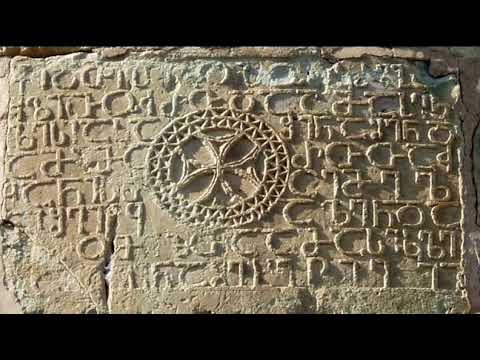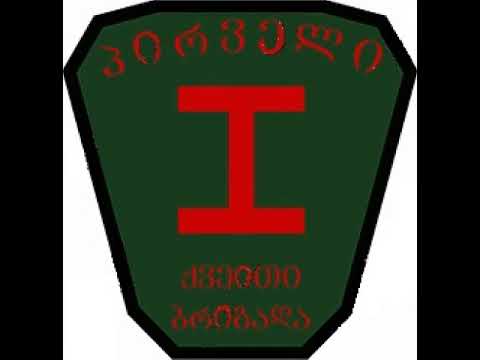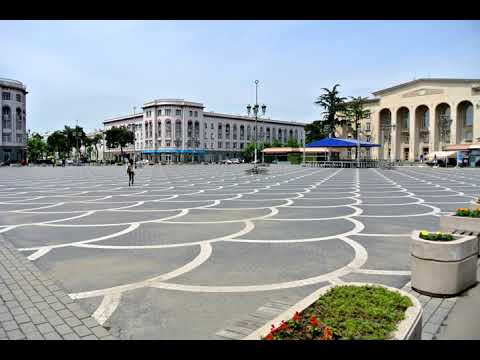Georgia (country) | Wikipedia audio article
This is an audio version of the Wikipedia Article: Georgia (country) Listening is a more natural way of learning, when compared to reading. Written language only began at around 3200 BC, but spoken language has existed long ago. Learning by listening is a great way to: - increases imagination and understanding - improves your listening skills - improves your own spoken accent - learn while on the move - reduce eye strain Now learn the vast amount of general knowledge available on Wikipedia through audio (audio article). You could even learn subconsciously by playing the audio while you are sleeping! If you are planning to listen a lot, you could try using a bone conduction headphone, or a standard speaker instead of an earphone. You can find other Wikipedia audio articles too at: / @wikipediatts983 In case you don't find one that you were looking for, put a comment. This video uses Google TTS en-US-Standard-D voice. SUMMARY ======= Georgia (Georgian: საქართველო, translit.: sakartvelo, IPA: [sɑkʰɑrtʰvɛlɔ] ( listen)) is a country in the Caucasus region of Eurasia. Located at the crossroads of Western Asia and Eastern Europe, it is bounded to the west by the Black Sea, to the north by Russia, to the south by Turkey and Armenia, and to the southeast by Azerbaijan. The capital and largest city is Tbilisi. Georgia covers a territory of 69,700 square kilometres (26,911 sq mi), and its 2017 population is about 3.718 million. The sovereign state of Georgia is a unitary semi-presidential republic, with the government elected through a representative democracy.During the classical era, several independent kingdoms became established in what is now Georgia, such as Colchis, later known as Lazica and Iberia. The Georgians adopted Christianity in the early 4th century. The common belief had an enormous importance for spiritual and political unification of early Georgian states. A unified Kingdom of Georgia reached its Golden Age during the reign of King David IV and Queen Tamar in the 12th and early 13th centuries. Thereafter, the kingdom declined and eventually disintegrated under hegemony of various regional powers, including the Mongols, the Ottoman Empire, and successive dynasties of Iran. In the late 18th century, the eastern Georgian Kingdom of Kartli-Kakheti forged an alliance with the Russian Empire, which directly annexed the kingdom in 1801 and conquered the western Kingdom of Imereti in 1810. Russian rule over Georgia was eventually acknowledged in various peace treaties with Iran and the Ottomans and the remaining Georgian territories were absorbed by the Russian Empire in a piecemeal fashion in the course of the 19th century. During the Civil War following the Russian Revolution in 1917, Georgia briefly became part of the Transcaucasian Federation and then emerged as an independent republic before the Red Army invasion in 1921 which established a government of workers' and peasants' soviets. Soviet Georgia would be incorporated into a new Transcaucasian Federation which in 1922 would be a founding republic of the Soviet Union. In 1936, the Transcaucasian Federation was dissolved and Georgia emerged as a Union Republic. During the Great Patriotic War, almost 700,000 Georgians fought in the Red Army against the German invaders. After Soviet leader Joseph Stalin, a native Georgian, died in 1953, a wave of protest spread against Nikita Khrushchev and his de-Stalinization reforms, leading to the death of nearly one hundred students in 1956. From that time on, Georgia would become marred with blatant corruption and increased alienation of the government from the people. By the 1980s, Georgians were ready to abandon the existing system altogether. A pro-independence movement led to the secession from the Soviet Union in April 1991. For most of the following decade, post-Soviet Georgia suffered from civil conflicts, secessionist wars in Abkhazia and South Ossetia, and economic crisis. Following the bloodless Rose Revolution in 2003, Georgia strongly pursued a pro-Western foreign policy; aimed at NATO and European integration, it introduced a series of democratic and economic reforms. This brought about mixed results, but strengthened state institutions. The country's Western orientation soon led to the worsening of relations with Russia, culminating in the brief Russo-Georgian War in August 2008 and Georgia's current territorial dispute with Russia. Georgia is a member of the United Nations, the Council of Europe, and the GUAM Organization for Democracy and Economic Development. It contains two de facto independent regions, Abkhazia and South Ossetia, which gained very limited international recognition after the 2008 Russo-Georgian War. Georgia and most of the world's countries consider the regions to be Georgian territory under Russian occupation.
wikipedia tts-ის სხვა ვიდეოები
 05:14
05:14
Principality of Svaneti | Wikipedia audio article
 24:42
24:42
Eduard Shevardnadze | Wikipedia audio article
 00:59
00:59
Bolnisi cross | Wikipedia audio article
 01:08
01:08
Georgian Stock Exchange | Wikipedia audio article
 02:29
02:29
Lazica | Wikipedia audio article
 04:34
04:34
Akhalkalaki | Wikipedia audio article
 00:51
00:51
Samachablo | Wikipedia audio article
 01:34
01:34
Dzala ertobashia | Wikipedia audio article
მსგავსი ვიდეოები

National bank of Georgia (country) | Wikipedia audio article
wikipedia tts

Military of Georgia (country) | Wikipedia audio article
wikipedia tts

Khmeli suneli | Wikipedia audio article
wikipedia tts

Georgian art | Wikipedia audio article
wikipedia tts

Samtskhe-Javakheti | Wikipedia audio article
wikipedia tts

Kvemo Kartli | Wikipedia audio article
wikipedia tts

Bolnisi cross | Wikipedia audio article
wikipedia tts

Georgian Stock Exchange | Wikipedia audio article
wikipedia tts